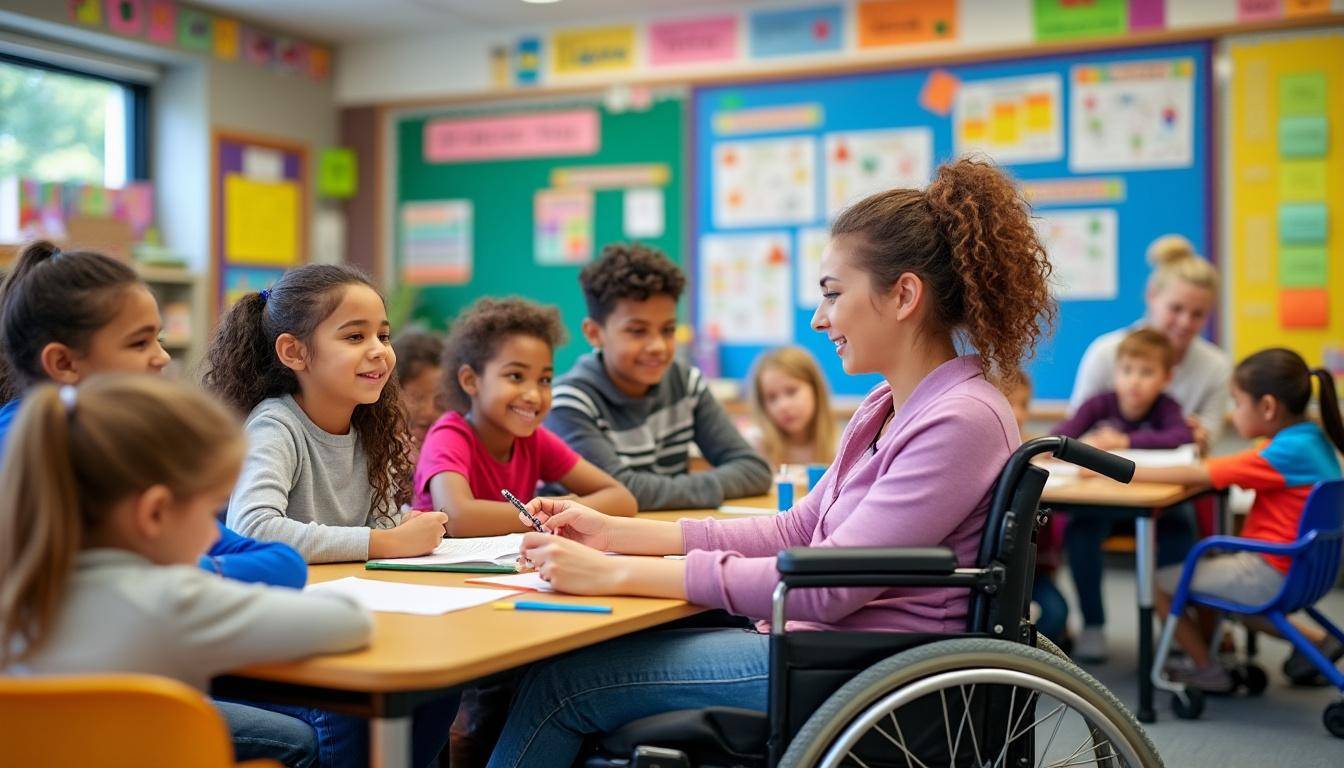The recent report on Virginia’s special education compliance system sheds light on persistent barriers that hinder effective support for students with disabilities. Despite ongoing efforts by the Virginia Department of Education, challenges such as inconsistent monitoring, limited resources, and communication gaps continue to affect service delivery. This analysis not only unpacks these obstacles but also outlines actionable recommendations aimed at bolstering compliance and fostering an inclusive learning environment for all students. As educators and advocates push for reform, innovative tools and collaborative strategies emerge as vital components in the path toward improvement.
Key Challenges in Virginia Department of Education’s Special Education Compliance System
Virginia has long faced scrutiny regarding its adherence to the Individuals with Disabilities Education Act (IDEA). The report highlights several critical issues affecting the state’s compliance framework:
- Inconsistent Monitoring and Reporting: Variability in how complaints and compliance issues are tracked across districts leads to fragmented data, impeding timely interventions.
- Resource Limitations: Underfunded programs and lack of Dedicated staff cause delays in evaluation and service provision, affecting students’ Individualized Education Programs (IEPs).
- Communication Barriers: Insufficient collaboration between state agencies, school divisions, and families results in misunderstandings regarding rights and available services.
- Lack of Uniform Training: Educators and administrators often lack access to up-to-date professional development on using Assistive Technology Solutions and Inclusive Learning Tools effectively.
Addressing these hurdles requires an integrated approach combining policy revision, capacity building, and technological enhancement.
Strategies to Enhance Compliance and Student Outcomes through Innovative Solutions
To overcome the highlighted obstacles, the report recommends implementing multifaceted strategies that align with best practices in special education:
- Strengthening Data Systems: Utilizing platforms like IEP Direct to standardize data collection and facilitate transparent reporting helps educators and policymakers make informed decisions.
- Expanding Access to Adaptive Educational Resources: Integration of cutting-edge Assistive Technology Solutions supports individualized learning systems tailored to diverse student needs.
- Empowering Educators and Families: Providing ongoing training through Educators for All initiatives and involving Special Education Advocates ensures that both practitioners and families are equipped to navigate compliance complexities.
- Forming Collaborative Partnerships: Engaging organizations such as Compliance Solutions Inc. and Special Needs Alliance fosters a networked approach to support and resource sharing across the state.
Emphasizing real-world application, the integration of technology plays a pivotal role in refining special education delivery. For a comprehensive overview of technology’s transformative impact, explore how technology is integrated in special education.
Building a Sustainable and Inclusive Special Education Framework in Virginia
Looking forward, sustainable reform involves commitment at all levels—from policymakers to classroom educators and parents. Core actions include:
- Policy Innovation: Updating compliance guidelines to reflect the complexities of modern special education needs and federal mandates.
- Resource Equity: Ensuring that funding, such as outlined in discussions surrounding budgets (public education funding trends), reaches underserved districts effectively.
- Community Engagement: Facilitating forums for parent and advocate voices to influence decision-making processes.
- Professional Development: Continuous learning opportunities on inclusive strategies and Individualized Learning Systems must be prioritized for all involved personnel.
By addressing both systemic and frontline needs, Virginia can create an environment where students with disabilities thrive academically and socially.
For insight into ongoing reforms and the challenges faced by children with special needs, the special needs reform children article provides valuable perspective. Additionally, broader educational challenges affecting children worldwide are examined in reports such as Million Children Missing Education.
The Role of Advocacy Groups and Assistive Technologies in Advancing Special Education
Key players like the Special Needs Alliance and Compliance Solutions Inc. serve as vital advocates ensuring that regulations translate into meaningful impact. Their efforts include:
- Providing legal support and guidance to families navigating complex compliance issues.
- Offering training sessions on implementing Assistive Technology Solutions to support diverse learners.
- Collaborating with the Virginia Department of Education to refine monitoring frameworks.
- Promoting Inclusive Learning Tools designed to foster equitable classroom participation.
The adoption of Individualized Learning Systems tailored to each student’s unique strengths not only respects federal mandates but also drives educational excellence.


